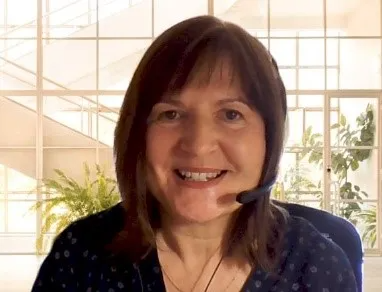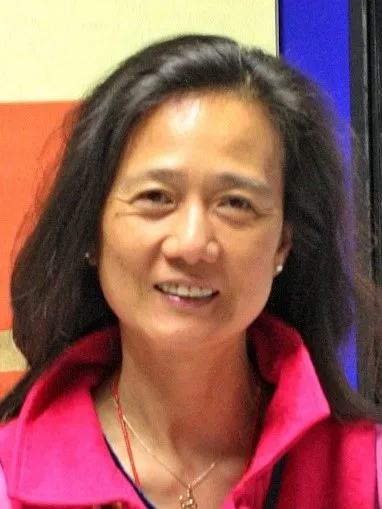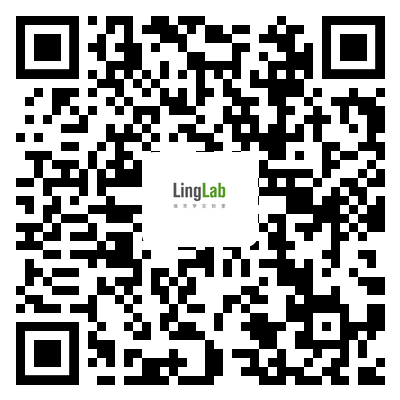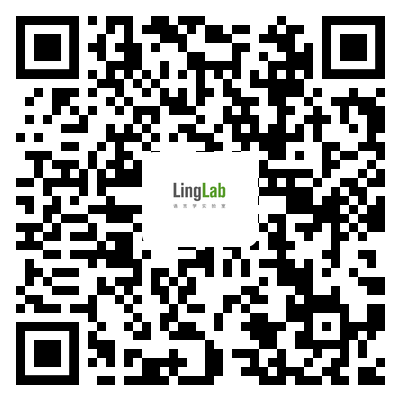716 阅读 2021-11-16 12:37:44 上传
会议讲座: 会议
形 式: 现场
主办单位: 北外人工智能与人类语言实验室
人 数: 待定
【主题】Understanding the unstoppable rise of informal mobile language learning(非正式移动语言学习势不可挡的兴起)
【讲座时间】11月19日 下午16:00-17:30
【主讲专家】Agnes Kukulska-Hulme教授(英国开放大学教育技术学院学习技术与传播学教授,未来学习研究与创新计划和创新教学系列报告负责人)
【主持人】唐锦兰教授(北京外国语大学网络教育学院院长、人工智能与人类语言重点实验室研究员)
【直播地址】
https://v.ttv.cn/watch/bfsuai211116
或扫码观看

03
【主题】How to embed employability skills and EDI in language curriculum design and material development(如何将就业技能和EDI(平等、多样、包容)嵌入语言课程设计和材料研发)
【讲座时间】11月26日 下午16:00-17:30
【主讲专家】Kan Qian博士(英国高等教育学院高级院士,英国开放大学语言及应用语言学学院高级讲师)
【主持人】唐锦兰教授(北京外国语大学网络教育学院院长、人工智能与人类语言重点实验室研究员)
【直播地址】
https://v.ttv.cn/watch/bfsuai211116
或扫码观看

04
【主题时间】Technology and the practices of lecturing(技术与讲授)
【讲座时间】11月30日 下午17:00-18:30
【主讲专家】Charles Crook教授(英国诺丁汉大学教育学名誉教授,曾任诺丁汉大学学习科学研究院院长、国际期刊《计算机辅助教学》主编)
【主持人】唐锦兰教授(北京外国语大学网络教育学院院长、人工智能与人类语言重点实验室研究员)
【直播地址】
https://v.ttv.cn/watch/bfsuai211116
或扫码观看

北京外国语大学网络教育学院
北京外国语大学人工智能与人类语言重点实验室
北京外国语大学国际交流与合作处
2021年11月13日
附:主讲专家简介及讲座摘要(按讲座时间排序)

Mohamed Ally教授
Mohamed Ally是加拿大阿萨巴斯卡大学(Athabasca University, Canada)在线和远程教育教授、技术增强知识研究院(TEKRI)研究员、英联邦学习共同体(Commonwealth of Learning, COL)首席科学家(Research Chair)。Ally博士曾任该校远程教育中心和计算与信息系统学院主任。在加拿大阿尔伯塔大学获教育技术专业博士学位。目前的研究领域包括移动学习、电子学习、远程教育、增强现实、虚拟现实、混合现实以及新兴的第四次工业革命技术(4IR)在教育和培训中的应用。Ally博士曾任国际培训发展联合会(IFTDO)主席,并且是移动学习国际协会(IamLearn)和混合式学习国际协会(IABL)的创始人之一。近年来编写17部关于在教育中使用新兴技术的书籍。他的著作《移动学习:改变教育与培训》因对远程教育的重大贡献荣获美国Charles A. Wedemeyer奖。Ally博士在许多国家发表主题演讲和论文、出席研讨会等。
【发言题目】
Education in the Fourth Industrial Revolution (4IR)(第四次工业革命下的教育)
【发言摘要】
We are in the Fourth Industrial Revolution (4IR) where many sectors of society are using 4IR technologies such as artificial intelligence (AI), robotics, Internet of Things (IoT), augmented reality, blockchain, virtual reality, mixed reality, and data analytics to provide service to customer and to develop quality products. Examples include: use of AI in the legal profession; robot police officer; autonomous vehicles; social media; financial systems, healthcare, language translation, AI for peace, hospitality, etc. These are only a few examples. The question education needs to answer is “Where is education in the use of 4IR technologies to provide quality inclusive education for all? Given that we are in the Fourth Industrial Revolution, does education have a choice? This session will describe the four industrial revolutions where there was a shift from manual labour in the first industrial revolution to physical automation and now to intellectual and physical automation where the technology is automating our physical and intellectual activities. This session will also present information on how 4IR technologies can be used in education.
【摘要译文】
我们正处于第四次工业革命(4IR)中,许多领域都在使用4IR相关技术,例如人工智能(AI)、机器人、物联网(IoT)、增强现实、区块链、虚拟现实、混合现实和数据分析,为客户提供服务,开发优质产品。例如:法律行业中应用人工智能、机器人警察、自动驾驶汽车、社交媒体、金融系统、医疗保健、语言翻译、人工智能用于维和、服务等等。教育需要回答的问题是:如何使用4IR技术为所有人提供优质全纳教育?我们正处于第四次工业革命中,教育还有选择吗?本讲座将描述四次工业革命,讲述从第一次工业革命中的手工劳动到物理自动化、再到现在的智能和物理自动化(技术正在使我们的物理活动和智力活动自动化)。本讲座还将介绍如何在教育中使用4IR技术。

Agnes Kukulska-Hulme教授
Agnes Kukulska-Hulme任英国开放大学教育技术学院(Institute of Educational Technology at The Open University, UK)学习技术与传播学教授,未来学习研究与创新计划(Future Learning Research and Innovation Programme)和创新教学系列报告(Innovating Pedagogy reports)负责人。研究专长包括在线远程教育、移动学习和语言学习。著述包括200多篇学术出版物和论文,并为联合国教科文组织(UNESCO)、英国文化教育协会(British Council)、英联邦学习共同体(COL)、国际英语教育研究基金会(TIRF)和剑桥大学出版社等机构担任教育政策和实践指南主要撰写人。她最新合编的著作《跨教育背景下的移动辅助语言学习》(Mobile Assisted Language Learning Across Educational Contexts)(Routledge, 2021)促进了创新实践的共享并探索了该领域的新兴主题。
【发言题目】
Understanding the unstoppable rise of informal mobile language learning(非正式移动语言学习势不可挡的兴起)
【发言摘要】
The rise of personal, social, and AI-powered technologies is providing unprecedented opportunities for informal language learning as a supplement to formal classes or as a substitute. Notable changes in students’ digital viewing, listening and participation practices in multiple languages suggest that a new paradigm is emerging, recently described as Mobile Open Social Learning for Languages (Read, Kukulska-Hulme, Barcena & Traxler, 2021). This paradigm highlights the integration of learning while mobile with creation of learning resources and participation in social interactions online. When learners are chatting on social media, following influencers, sharing photos, making videos, playing games or collaborating, they are broadening the scope for observing language, capturing how it is used and getting more practice. Yet many of these activities are unconnected to what they are doing in a language class. This talk considers learners’ motivations for informal mobile language learning and the circumstances which influence when and how they go about their learning. Contexts in which learners are resource-poor and marginalised present special challenges. Furthermore, informal language learners do not necessarily have well-developed abilities to self-regulate their learning. In the emerging landscape of digital exploration and adventure, learners still need guidance and support.
【摘要译文】
个人、社交和人工智能技术的兴起为非正式语言学习作为正式课程的补充或替代提供了前所未有的机会。学生在多语言中的数字观看、听力和参与实践的显著变化表明,一种新范式正在出现,即语言的移动开放社交学习(Read, Kukulska-Hulme, Barcena & Traxler, 2021)。该范式强调整合移动学习、创建学习资源和参与在线社交互动。当学习者在社交媒体上聊天、关注有影响力的人、分享照片、制作视频、玩游戏或合作时,学习者也在扩大观察语言的范围,捕捉语言的使用方式并获得更多练习。然而,其中许多活动没有与学习者在语言课上所做的事情相结合。本演讲关注学习者进行非正式移动语言学习的动机,以及影响学习者学习时间和学习方式的因素。处于资源匮乏和边缘化的学习者面临着特殊挑战。此外,非正式语言学习者不一定具有良好的自控能力。在新兴的数字探险领域,学习者仍然需要指导和支持。

Kan Qian 阚茜博士
阚茜博士,英国高等教育学院高级院士(Senior Fellow, The British Higher Education Academy),现任英国开放大学语言及应用语言学学院高级讲师(Senior Lecturer, School of Language and Applied Linguistics at The Open University, UK)、现代外语及应用语言学博士生导师,并兼任剑桥大学基督学院及露西·卡文迪学院亚洲及中东专业指导主任(Director of Studies in Asian and Middle Eastern Studies, Christ’s College and Lucy Cavendish College, University of Cambridge, UK)。她的研究领域包括现代信息技术在外语教学中的应用;移动学习对外语教学和学习的影响;在线论坛对语言学习的作用;慕课设计;电子搭档学习以及交叉文化学习等。发表的学术论文(包括期刊及书籍章节)请见:https://www.open.ac.uk/people/qk8#tab3 。
【发言题目】
How to embed employability skills and EDI in language curriculum design and material development(如何将就业技能和EDI(平等、多样、包容)嵌入语言课程设计和材料研发)
【发言摘要】
This is going to be an interactive workshop focusing on the following areas:
1) Challenges in language teaching and learning: discuss the challenges of online teaching, teacher/learner feedback, foreign language learning anxiety, etc.; and explores strategies to overcome these challenges guided by the existing learning concepts (such as social cognitive/social-cultural theories, task-based teaching, etc); and introduce some innovating pedagogies to tackle the challenges including the following two areas.
2) Importance of developing employability skills: introduce UK High Education Academy’s framework for embedding employability in higher education, and discuss how we can embed the employability skills in our language curriculum.
3) Importance of EDI (equality, diversity, and inclusion): introduce the concept of EDI, reflect on one’s teaching practices and teaching materials in terms of EDI; and discuss how we can embed EDI in language learning materials development.
【摘要译文】
这将是一个互动工作坊,重点关注以下领域:
1) 语言教学的挑战:讨论在线教学、教师/学习者反馈、外语学习焦虑等挑战;通过介绍以下两个创新教学方法,探讨在现有学习理念(如社会认知/社会文化理论、任务型教学等)指导下,应对这些挑战的应对策略。
2) 培养就业能力的重要性:介绍英国高等教育学院将就业能力嵌入高等教育的框架,并讨论我们如何将就业能力嵌入语言课程中。
3) EDI(平等、多样、包容)的重要性:介绍EDI的概念,用EDI反思自己的教学实践和教材;并讨论我们如何将EDI嵌入语言学习材料开发中。

Charles Crook教授
Charles Crook,英国诺丁汉大学(University of Nottingham, UK)教育学名誉教授。1972年于英国剑桥大学获得实验心理学博士学位。长期从事发展心理学及教育技术的批判研究(developmental psychology and critical studies of educational technology)。Crook教授是欧洲发展心理学学会创始成员,曾任诺丁汉大学学习科学研究院院长、国际期刊《计算机辅助教学》(Journal of Computer-Assisted Learning)主编、英国心理学会发展心理学分会主席,现任香港研究评审工作教育学专家组主席(Chair of the Education Panel for the Hong Kong Research Assessment Exercise)。近期学术成果包括:Assessment of ICT in Tertiary Education Applying Structural Equation Modelling and Rasch Model (基于结构方程模型和 Rasch 模型评估高等教育中的信息技术应用); Facilitating innovation with technology: Key actors in educational ecosystems (以技术促创新——教育生态系统中的关键参与者); How new technology is addressed by researchers in Educational Studies: Approaches from high-performing universities in China and the UK (教育研究人员如何对待新技术——来自表现优异的中国和英国大学的方法)等等。
【发言题目】
Technology and the practices of lecturing(技术与讲授)
【发言摘要】
This talk concerns the reputation of expository teaching – with special attention to the status of the ‘lecture’ as a learning relationship in higher education. As an educational practice, lecturing has been widely criticised. And yet it remains resilient. This may reflect the positive impact that new technologies have had on both teachers’ presentational strategies and their dissemination of lectures. This talk will welcome these extensions of the medium but highlight some significant limitations to the way in which digital tools are made to engage with lecturing. Particular attention will be given to how teachers integrate voice and image and the narrow variety of images chosen. The adoption of video (or “captured”) lectures will be discussed in relation to the management of intersubjectivity and their potential as sites of collaboration between student peers.
【摘要译文】
本次讲座聚焦讲解式教学——特别是“讲座”在高等教育中作为一种学习关系的地位。作为一种教育实践,讲授虽然受到了广泛批评,但是一直存在。重要原因是由于新技术对教师的演讲策略和讲座传播所产生的积极影响。在肯定这一趋势的同时,作者也指出运用数字工具的不足之处。讲座还特别关注教师如何在讲座中整合语音和图像,以及所选图像缺乏多样性的问题。最后,作者将结合主体间性理论,探讨视频或“录制的”讲座如何作为学生之间协作学习的支点。











